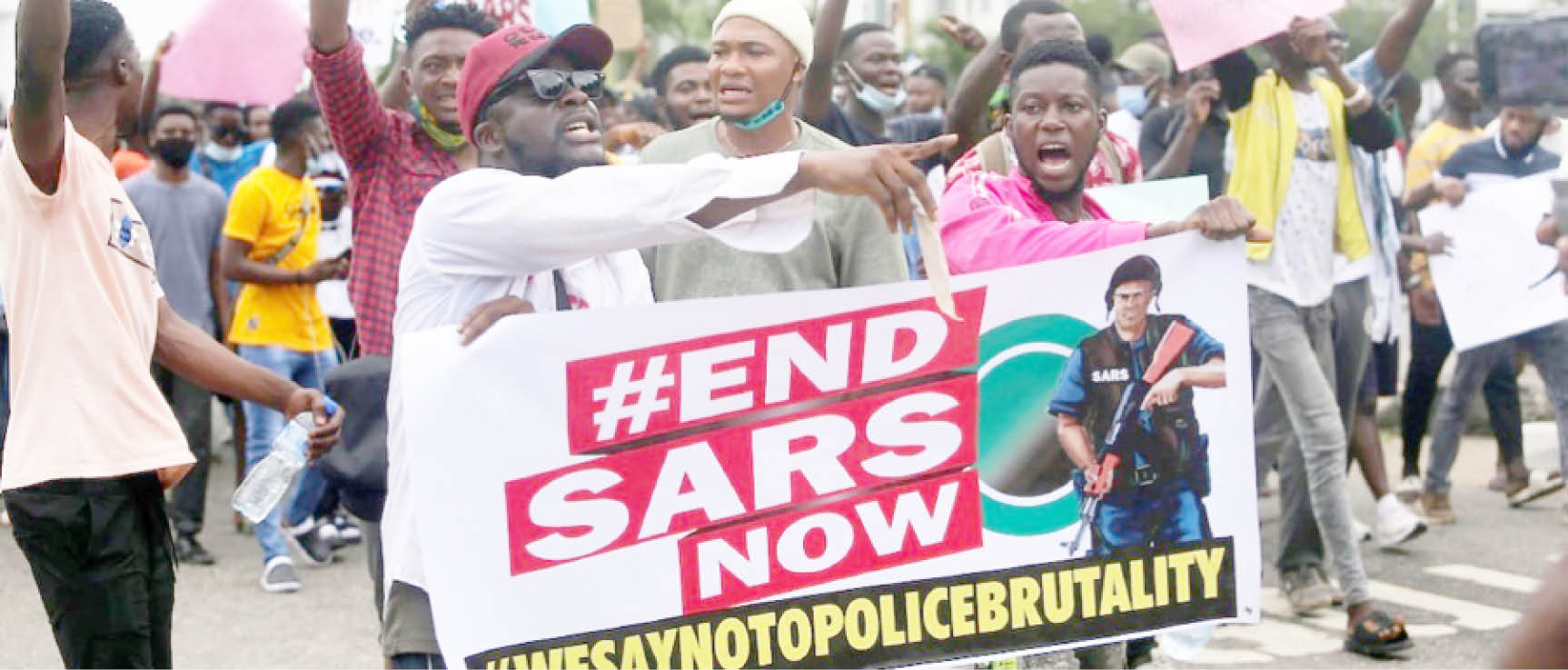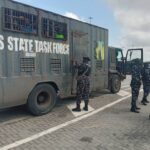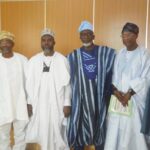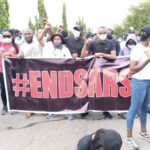By Lanre Ikuteyijo
Police brutality is not unique to Nigeria. The menace is almost universal. It is the level of accountability and transparency in policing that makes the difference in some countries, such as the UK and Canada, which we see as models.
A year ago this month #EndSARS protests erupted in major cities across Nigeria. The protests were sparked by many reported cases of police brutality. The last straw was the video of a man allegedly killed by members of the infamous Special Anti-Robbery Squad (SARS).
The protests took a deadly turn on 20 October 2020 when security forces opened fire at the Lekki toll gate in Lagos. There were reports that at least 12 people were killed.
- PHOTOS: Falz, Mr Macaroni lead EndSARS procession at Lekki tollgate
- Anxiety as EndSARS promoters insist on memorial protest
The protests did not eliminate police brutality – and they could not have. But they undoubtedly brought to the fore the crudeness of some police officers and the rot which had pervaded the Nigerian police for years.
Some of the major demands of the protesters included the disbandment of the robbery squad, justice for victims of police brutality, and improved welfare of police officers. Incidents of brutality have been reported in the year since then. This has included a report by Amnesty International citing police brutality and human rights violations in south-east Nigeria from January to June 2021.
Incidents in the past year have not been of the same magnitude as those before the protests.
President Muhammadu Buhari took two weeks to respond to the protests, delivering a speech on 22 October. This was two days after the shootings in Lekki.
He made a series of promises. They included: banning the Special Anti-Robbery Squad; bringing erring officers to book; and setting up committees of enquiry in all the states, including the capital city, Abuja.
But many felt his response did not adequately address the issues raised by the protesters. Many were of the opinion that the president deliberately ignored the shootings at Lekki but diverted attention to his poverty alleviation strategies. Others also described the president’s address as grossly unapologetic.
What’s been done, and what’s not been done
The first decision taken in the wake of the protests was the disbanding of the tactical squad.
However, nothing has been heard about erring officers being punished.
Also, not all states went ahead to set up the panels of enquiry. To date, only 26 of the 36 states have panels of enquiry. Nigeria’s human rights commission says noncomplying states do not have funds to set up panels.
The inspector general of police, Usman Alkali Baba, who took up the post in the aftermath of the protests, has taken some action. This has included:
recruiting more police officers to boost the understaffed force
attempting to improve police legitimacy by, for example, dismantling roadblocks across the country
undertaking a nationwide tour of major police formations to boost the morale of officers.
The efficacy or otherwise of these attempts remains debatable.
In addition, rising insecurity in the country due in particular to the activities of bandits and kidnappers has dwarfed the response of government to enhance security across the country. The strategies adopted by the kidnappers included mass abductions of travellers and school children.
The Nigerian government has put in place some plans to fight insecurity including allocation of more funds for the acquisition of arms and ammunition, and partnership with other countries.
These efforts, however, have been derailed by inadequate intelligence and information gathering, corruption and poor funding.
Most government-initiated investigations into the shootings and deaths that occurred during the two-week-long protests have not made much progress. The exception is the Lagos State Government. Independent investigations have been launched by several organisations within and outside the country including Amnesty International, CNN and the International Criminal Court.
Government investigations have stalled for a number of reasons.
Firstly, key players have not come to the party.
The Nigerian Army initially denied the involvement of its troops at the scenes. A week after, it admitted that troops had intervened at the request of the Lagos state government.
Nevertheless it didn’t honour an invitation to attend the inquiry.
On top of this, little has been heard about the activities of the panels set up in each state with the exceptions of Lagos, Delta, and Rivers States. Issues of fairness have also been raised, with complaints that inadequate provision was made for everyone to be represented.
Each of the panels is expected to come up with recommendations. If these aren’t implemented it will amount to a double loss for the petitioners. Not only would they have been unjustly treated by the police but they would also have wasted their time and resources trying to get justice.
Structural barriers
Reforming Nigeria’s police force will take a great deal more effort and commitment than has emerged in the past 12 months.
To begin with there’s the structural problem of the fact that the police force is heavily centralised. States don’t have power over the police. This will clearly have an impact on the outcomes of the different panels that have been set up at state level.
Secondly, if erring police officers aren’t being punished, the panels won’t be able to curb police brutality or ensure justice for victims of brutality.
Ikuteyijo writes via The Conservation

 Join Daily Trust WhatsApp Community For Quick Access To News and Happenings Around You.
Join Daily Trust WhatsApp Community For Quick Access To News and Happenings Around You.

